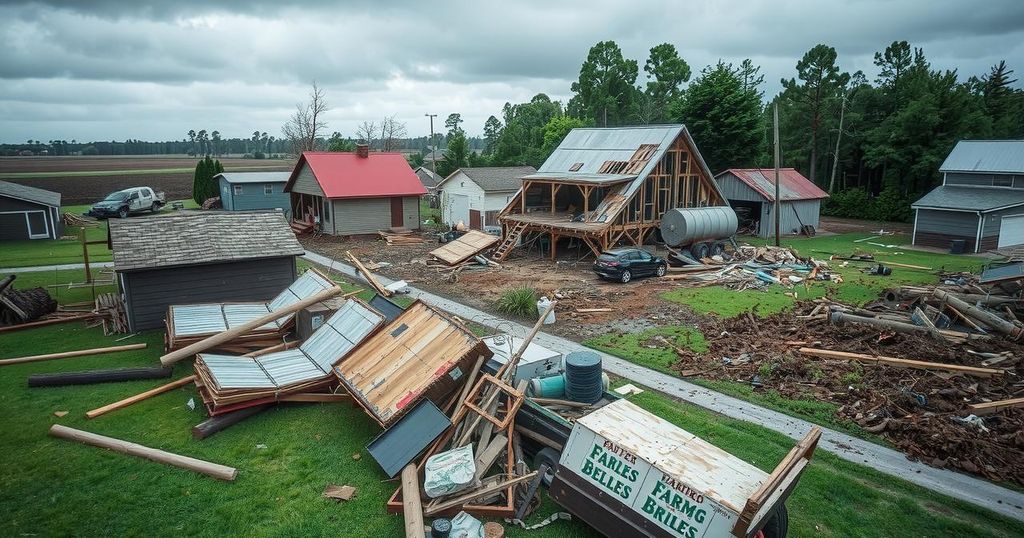Farmers Face Long Road to Recovery After Hurricane Helene’s Devastation

Hurricane Helene severely impacted farmers in the South, resulting in damages exceeding $10 billion. In Georgia, losses amount to $5.5 billion, particularly affecting cotton growers. The recovery process is underway, but the financial and emotional toll on farmers is substantial, with calls for expedited aid and long-term rebuilding efforts.
Farmers in Georgia and surrounding states are still grappling with the aftermath of Hurricane Helene, which struck on September 26 as a major Category 4 storm. The extensive damage includes destroyed crops, devastated infrastructure, and significant financial losses, estimated to exceed $10 billion for agribusinesses from Florida to Virginia. In Georgia alone, losses are reported at $5.5 billion, greatly affecting cotton growers like Chris Hopkins who witnessed the destruction of half of his cotton harvest. The storm’s effects were widespread, impacting not only local farmers but also the broader agricultural economy, as processing plants have reduced their operations due to the diminished supply of both poultry and crops. Despite the challenges, federal and state relief measures are underway, though recovery will be lengthy and difficult, especially for those who lost a substantial portion of their livelihoods.
Hurricane Helene, a powerful hurricane that struck the southern United States in late September 2022, caused catastrophic damage to agricultural resources across several states. The storm’s path affected a variety of crops and livestock, leading to an unprecedented financial burden on farmers, particularly in Georgia. Helene’s landfall was characterized by severe winds and rainfall, compounding the already vulnerable agricultural landscape as farmers were in the middle of their harvest season. The economic impact of the storm is still being assessed, with various state agencies and universities analyzing the extent of the damages to provide a roadmap for recovery.
In summary, Hurricane Helene has inflicted severe damage on the agricultural sectors of affected states, with financial losses reaching staggering heights. The immediate and long-term impacts on farmers such as Chris Hopkins and Jeffrey Pridgen underscore the significant challenges facing the agricultural community in the wake of natural disasters. While state and federal aid is being mobilized, the journey to recovery will be both arduous and prolonged, leaving many farmers questioning their future in the industry. The resilience of these agricultural businesses is put to the test as they navigate the path forward after such a catastrophic event.
Original Source: www.agrinews-pubs.com






